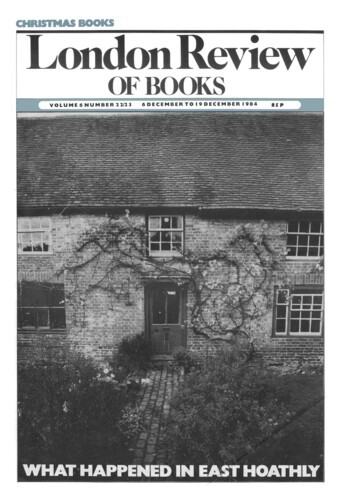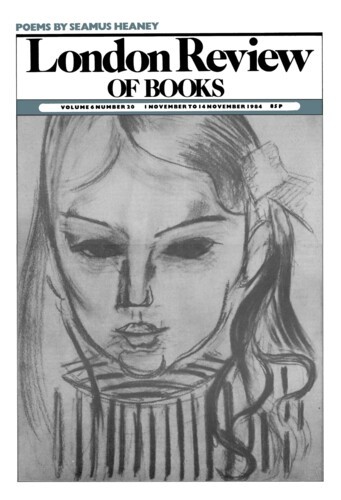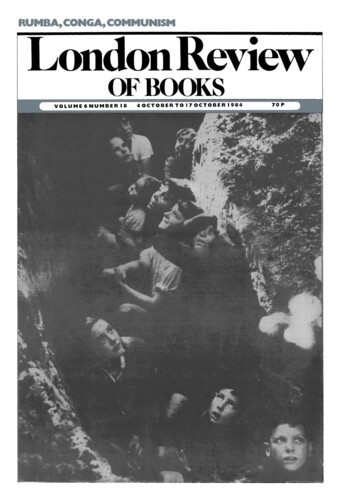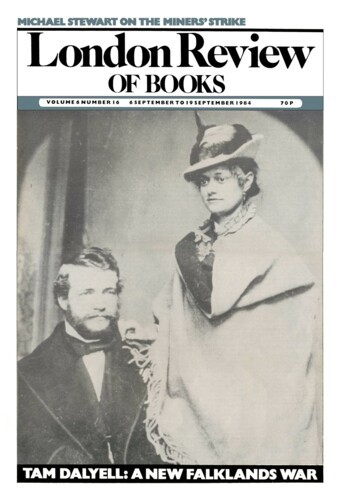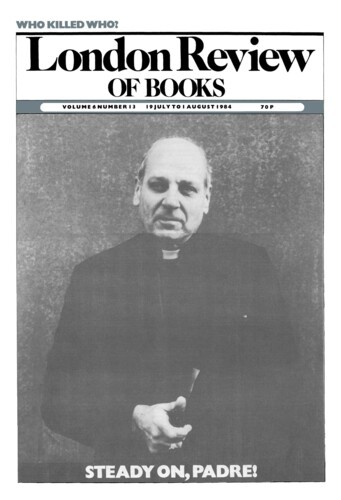Hons and Wets
D.A.N. Jones, 6 December 1984
Nancy Mitford’s first novel, Highland Fling, is about a young British gentlewoman in the late 1920s, wriggling uneasily but divertingly in the generation gap of her time and class. Her parents’ generation seems to be stuck in the mud of the grouse-moors: tough as old boots, the elders blaze away, pausing to reminisce about World War One and the filthy Hun. Her young friends (rather camp, resembling Driberg and Betjeman) offer a different life-style, a gossip-column world of night-clubs, Continental cities, private views and political dissidence. Caught between bright young aesthetes and grim, dim old hearties, the girl thinks wistfully, romantically, about her chic and forceful Victorian grandparents – and she is encouraged in this ‘nostalgia’ by her most Betjemanic young friend, Albert (‘Memorial’) Gates, a surrealist artist who annoys the elders with his modern, pacifist dissidence, as well as his eccentric reverence for ‘Victorian monstrosities’. The girl tells another chum about her splendid Victorian grandparents: ‘Brains often skip a generation, you know, and come out in the grandchildren. Poor mummy and daddy are both terribly stupid: darlings, of course, but narrow-minded and completely unintellectual.’ This engaging fantasy tells something about the imagination of Nancy and her five sisters, the Mitford girls, affectionately scornful of their parents, eager to emulate the grandeur of their grandfathers.’
